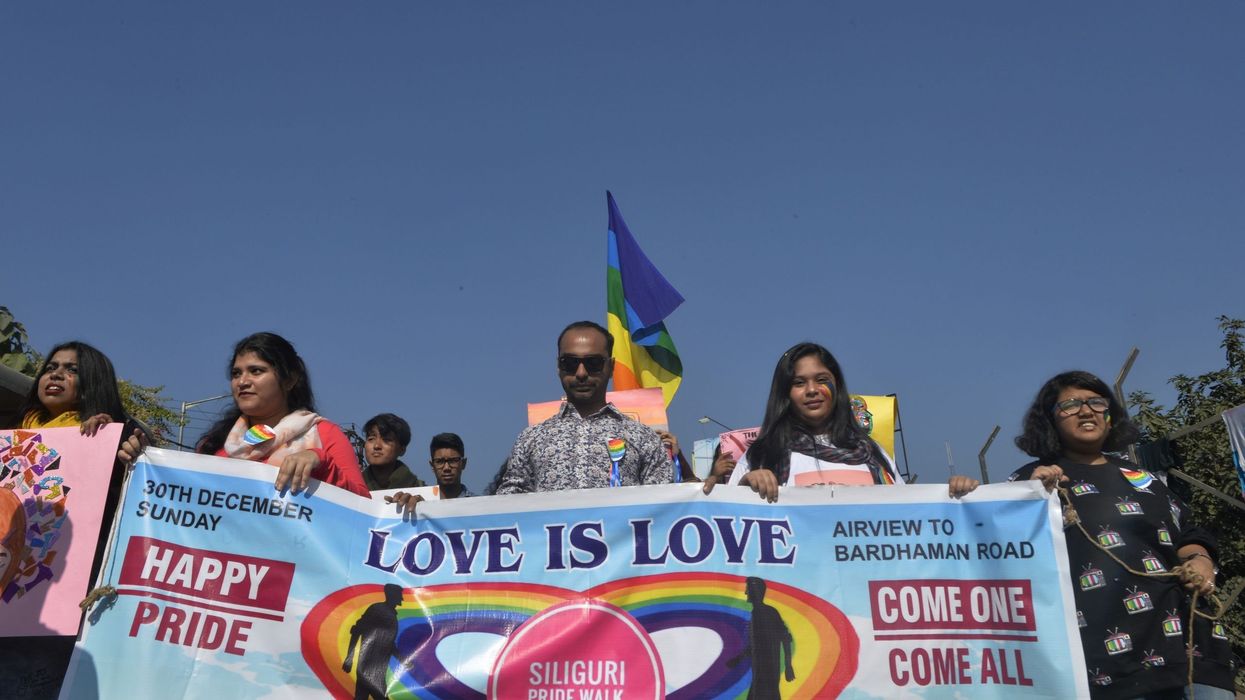India's top court on Tuesday (17) declined to legalise same-sex marriages. However, it emphasised the country's responsibility to recognise LGBTQ relationships and safeguard them against discrimination.
The government has opposed moves to legally codify same-sex partnerships in the five years since the Supreme Court struck down colonial-era laws banning gay sex.
Lawyers for several same-sex couples urged the court earlier this year to grant their relationships full legal recognition, but the five-member bench ruled that extending marriage equality was a parliamentary decision.
"It lies within the domain of parliament and state legislatures to determine the law on marriage," Supreme Court Chief Justice D.Y. Chandrachud said during his verdict.
The court's ruling held that the fundamental right to marriage for same-sex couples was not guaranteed by India's constitution under existing law.
It did grant marriage rights to couples where one or both members were transgender, provided one participant in the union identified as a man and the other as a woman.
Chandrachud added that India still had a duty to acknowledge same-sex relationships and protect those in them from discrimination.
"Our ability to feel love and affection for one another makes us feel human," he said from the bench.
"This court has recognised that equality demands that queer unions and queer persons are not discriminated against."
The verdict was greeted with sadness and disappointment by a crowd gathered outside the court who had hoped to celebrate India becoming the second Asian jurisdiction after Taiwan to legalise same-sex marriages.
"We are not satisfied with whatever the court has said", Siddhant Kumar, 27, told AFP.
"This has been going on for years, we have been struggling for legal recognition," he added. "We have to remain strong and continue our fight."
The petitioners had said validating same-sex marriage would help them access some of the legal benefits of matrimony, including adoption, insurance and inheritance.
- 'Complete havoc' -
But Narendra Modi's government has staunchly opposed same-sex marriage, and insisted that any change was up to parliament and not the courts.
"Any interference... would cause a complete havoc with the delicate balance of personal laws in the country and in accepted societal values", the government said in its submission.
"Living together as partners and having sexual relationship by same sex individuals... is not comparable with the Indian family unit concept of a husband, a wife and children", it added.
Siddhant Rai, 20, who was among the crowd outside the court, said he did not expect any official endorsement of same-sex marriage under Modi's ruling Bharatiya Janata Party (BJP).
"I am disheartened by today's ruling," he told AFP. "As long as the BJP is there in power, I don't see a judgement coming in our favour in the near future."
Marriages are governed by family laws for specific religions, such as the Muslim Marriage Act and the Hindu Marriage Act.
A landmark ruling in 2018 struck down the British colonial-era law criminalising gay sex, and last year the court ruled that unmarried partners or same-sex couples were entitled to welfare benefits.
Acceptance of gay couples grew in the wake of the 2018 ruling. A Pew survey in June suggested 53 per cent of Indian adults favoured same-sex marriage while 43 per cent opposed it.
But leaders from all of India's main religions -- Hindu, Muslim, Jain, Sikh and Christian -- also oppose same sex union, with several of them insisting that marriage "is for procreation, not recreation".
More than 30 countries allow same-sex marriage while others recognise same-sex civil unions.
While much of Asia is tolerant of homosexuality, Taiwan became the first in the region to allow gay marriage after a landmark ruling by its Constitutional Court in 2017.
Vietnam, Thailand and Nepal have also taken steps towards the recognition of same-sex partnerships.
(AFP)












